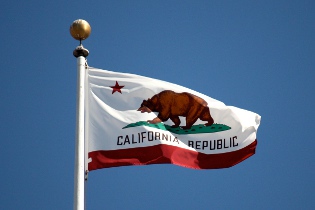
For most of 2015, California was at the forefront of the movement to regulate online gaming and/or poker in the United States. The problem was that was the furthest it ever got in the Golden State – discussion – as only one bill passed out of committee and it was little more than a placeholder for future discussion. With the start of the New Year, however, it seems that the California State Assembly will be aggressively attacking the question of online poker for its citizens.
On January 6, the Governmental Organization Committee of the California State Assembly will meet for a hearing regarding the litany of online gaming bills that is before the group. They cover a multitude of areas that include sports betting and daily fantasy sports (DFS), but it is their continuing work regarding online poker that most in the poker world will be interested in. In fact, the bill that will be discussed by the Committee will be the bill that many consider to have the best chance at passage through the California State Legislature.
AB 167, a bill introduced by Representative Reginald Jones-Sawyer (who took over as the main driver of online poker regulation in California following the ethics conviction of fellow Representative Rod Wright in January 2014) that would completely open up the state of California for intrastate online poker. Jones-Sawyer’s bill will be the first note of discussion for the committee on Wednesday and seemingly has taken the lead over two other bills that have been jockeying for position on the stage. The reason that Jones-Sawyer’s bill may be the one to garner passage could be that it is a compromise between all the parties involved.
Under other legislation, the California race tracks are cut out of the action, something that has previously held up any online poker legislation. Jones-Sawyer’s bill allows for the race tracks to be a part of the game alongside the powerful Indian casinos and card rooms in the state. Secondly, Jones-Sawyer’s bill eliminates any “bad actor” language that has been bandied about previously, meaning that there would be no preconceived barrier blocking some companies from participation in a California online poker industry (an important point with Amaya Gaming and PokerStars in a partnership with several of the Indian tribes and card rooms to provide software). As of now, there are no witnesses listed for presentation at the hearing.
There is some passing interest in the other three bills that will be on the table. All of them have been proposed by the chairman of the Governmental Organization Committee, Representative Adam Gray, with the more intriguing ones being AB 1437 and AB 1441. After the turmoil over the legality of its operations in several states over the past few months, AB 1437 is looking to pass regulation of the daily fantasy sports industry; in addition to that, AB 1441 would open up California for sports wagering, something that currently is only legal in four states (Nevada, Oregon, Montana and Delaware).
For those expecting any earth-shattering news out of the California hearings, it is time to temper those expectations. With this meeting strictly billed as a “hearing,” indications are that there will not be any vote about moving Jones-Sawyer’s bill forward for consideration by the entire State Assembly. Lacking a current bill in the California State Senate, there is nothing to partner Jones-Sawyer’s bill with for presentation to Governor Jerry Brown, which could very well be the next step for those serious about passing online poker regulation in California in 2016.
If and when California passes some sort of online poker regulation, it would be the biggest jewel in the nation to make a decision on online poker. By far the largest state with approximately 39 million citizens, the California online poker industry would be the most lucrative one in the United States. In fact, it is arguable that it is the only state that could reasonably survive on its own without having to “compact” with another state or states in an interstate deal. Until some serious legislation comes out of the California State Legislature, however, the talk is all that exists.























